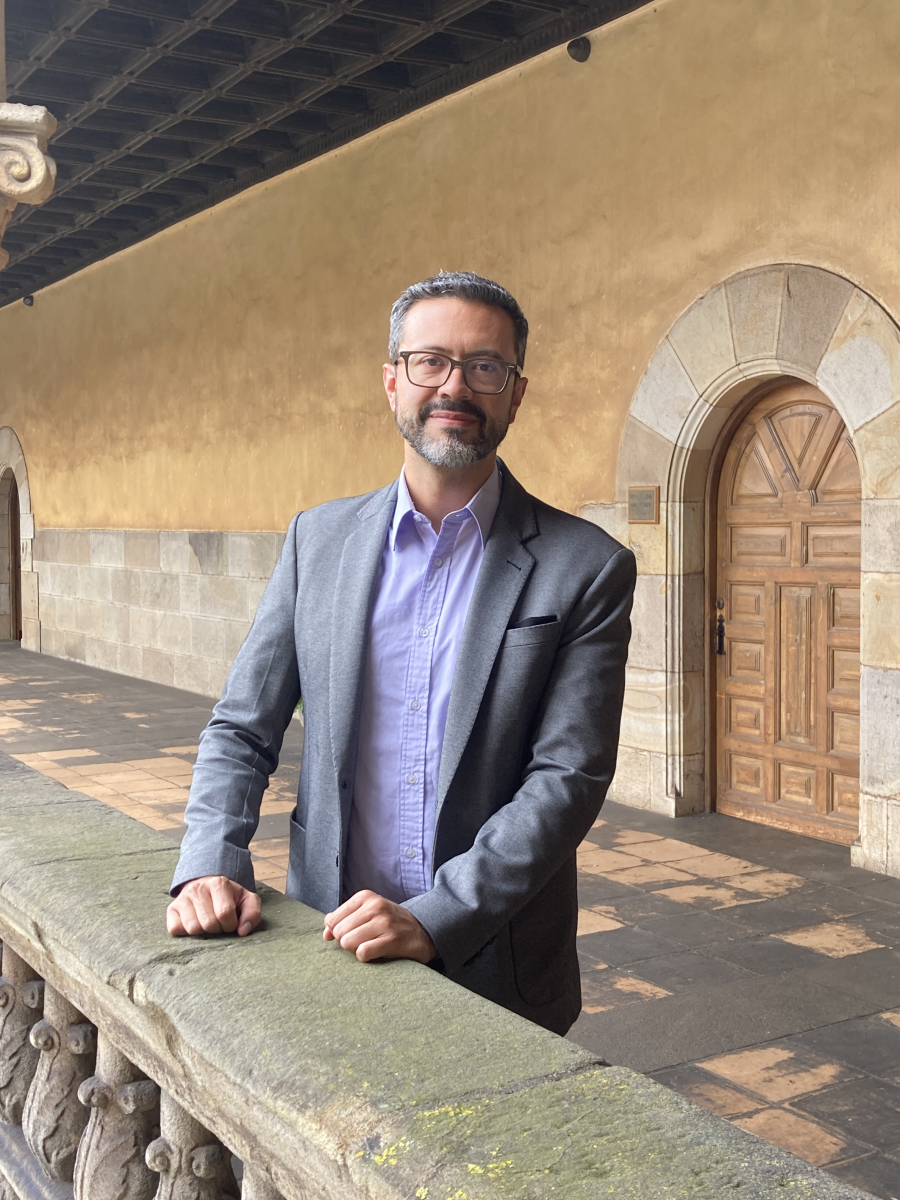Camilo Umaña (Scientific Director 2025-2027): Short biography

Camilo Eduardo Umaña Hernández is a Colombian scholar with extensive experience in socio-legal research, human rights, criminology, and public policy in the justice sector.
To know more about his life and trajectory: https://www.youtube.com/watch?v=Oydnh79VAzk
He holds two PhDs—one in Criminology (University of Ottawa) and another in Sociology of Law (University of the Basque Country, UPV/EHU)—both awarded cum laude, with a research on the conceptualization of impunity and state criminality from a socio-legal perspective.
To know more about this research: https://www.youtube.com/watch?v=-d420Q73AU8
Camilo is a longstanding member of the Oñati community, first as student of the IISL’s Master, which he completed with cum laude distinction, and later as one of our professors for the Transitional Justice and Human Rights course in 2020 and 2021 alongside Professor Stephan Parmentier.
From 2022 to 2024, Umaña served as Colombia’s Deputy Minister of Justice, where he led institutional reforms in drug policy, the prison system, and restorative justice. Notably, he implemented gender-sensitive alternatives to incarceration.
His work in transitional justice spans multiple sectors. As one of the researchers of the Colombian Truth Commission, he focused on access to justice in the context of armed conflict. He also participated in the victims’ delegations during Colombia's peace negotiations.
To know more about his trajectory in transitional justice: https://www.youtube.com/watch?v=pfK47gy2nGE
At the UN level, he has collaborated with the International Labour Organization (ILO), the United Nations Development Programme (UNDP), the Office of the High Commissioner for Human Rights (OHCHR) in Colombia.
Between 2024 and 2025, Umaña was a Fellow at the Carr Center for Human Rights Policy at Harvard Kennedy School and a Craig M. Cogut Visiting Professor at Brown University’s Center for Latin American and Caribbean Studies, a prestigious appointment to conduct research and teach on global drug policy and human rights.
He is a professor of the University Externado de Colombia, where he teaches in the doctoral and postgraduate programs.
Camilo understands socio-legal scholarship as a powerful tool for critical thinking and collective transformation. For him, legal research must go beyond theory: it should generate concrete methodologies, practical knowledge, and hands-on tools to address the most pressing social problems. His work reflects a deep commitment to practice-oriented research with real-world impact—placing the implementation of justice, social programs, and institutional reform at the heart of academic inquiry.
* * *
The tasks of the Scientific Director of the International Institute for the Sociology of Law (IISL) include overseeing the Institute’s international Master’s programme, the workshop programme and the visiting scholars programme, the relations with Basque universities, authorities, and the interested public as well as the development of the library and the Institute’s publications. Through its international activities, the IISL serves as an important hub in networking socio-legal scholarship from different world regions.
The Scientific Director is appointed by the Governing Board of the Institute upon proposal by the Board of the Research Committee on Sociology of Law (RCSL), a scientific body formed within the International Sociological Association. The Governing Board consists of Members appointed by the Basque Government as well as of Members appointed by the RCSL. The Scientific Director is selected based on an international call for applications and appointed for a period of two years each.
A complete list of former Scientific Directors of the Institute includes:
- André-Jean Arnaud, 1988-1991
- Paavo Uusitalo, 1991-1992
- Rogelio Pérez Perdomo, 1992-1993
- Roberto Bergalli, 1993-1995
- Johannes Feest, 1995-1997
- Jacek Kurczewski, 1997-1998
- Pierre Guibentif, 1998-2000
- William Felstiner, 2000-2002
- Manuel Calvo-García, 2002-2003
- Volkmar Gessner, 2003-2005
- Joxerramon Bengoetxea, 2005-2007
- Carlos Lista, 2007-2009
- Sol Picciotto, 2009-2011
- Angela Melville, 2011-2013
- Adam Czarnota, 2013-2016
- Vincenzo Ferrari, 2016-2018
- Noé Cornago, 2018-2020
- Martin Ramstedt, 2020-2022
- Sabine Frerichs, 2022-2024
- José María Sauca, 2024-2025
- Camilo Eduardo Umaña Hernández, 2025-2027



